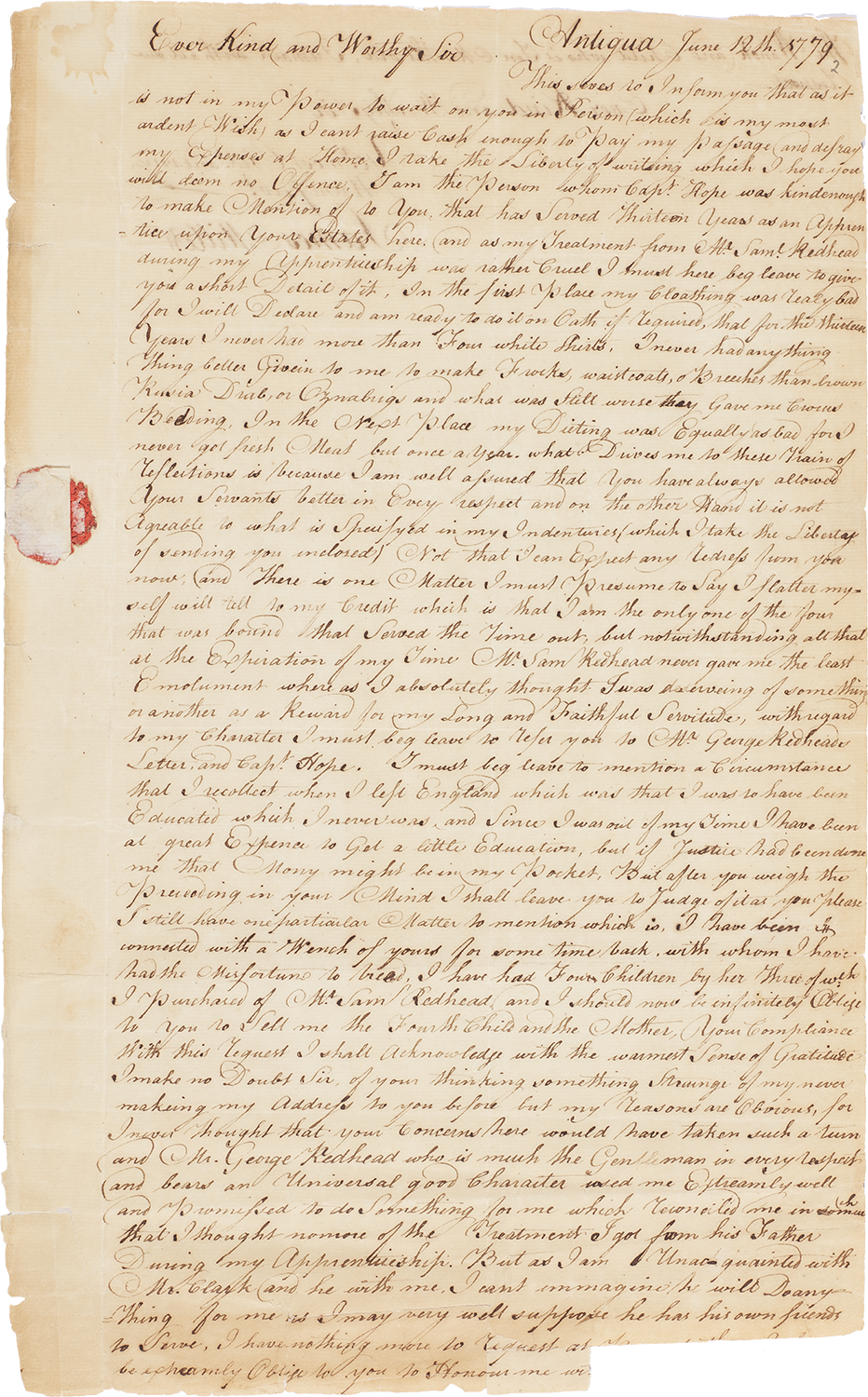
I would like to buy the mother
(Click image for a larger view)Credit: The Bodleian Libraries, University of Oxford, MS. 15096

WENCH
Amina Atiq
In your warmest sense of gratitude
you ask of me and my ten-month child
everyone has forgotten us, as you remember I am here
clothed in your waistcoats or worse colony bedding.
I hope you will deem no offense, I promised
death to run while your lingua left my body
thirteen years of drunkenness. But here, you stained
your four white shirts, allow me to wipe your mouth of slavery.
No doubt of your thinking something strange
you write I am your misfortune to breed, an indulged
child-bearer, a sugar-shipped body, dancing cuffs in rituals
around the highest bidders and studying wombs in English salve codes.
I take my liberty of sweet-poetry, a moment of grief
oath to all my four children to bless this Island
under the Barbados windmills, wash in their holy water
build the Codrington Estate in their mother’s bulwarks.
I shall leave you to judge of it as you please
but I still have one particular matter to mention
there is an uprising lost between your starved forlorn eyes.
